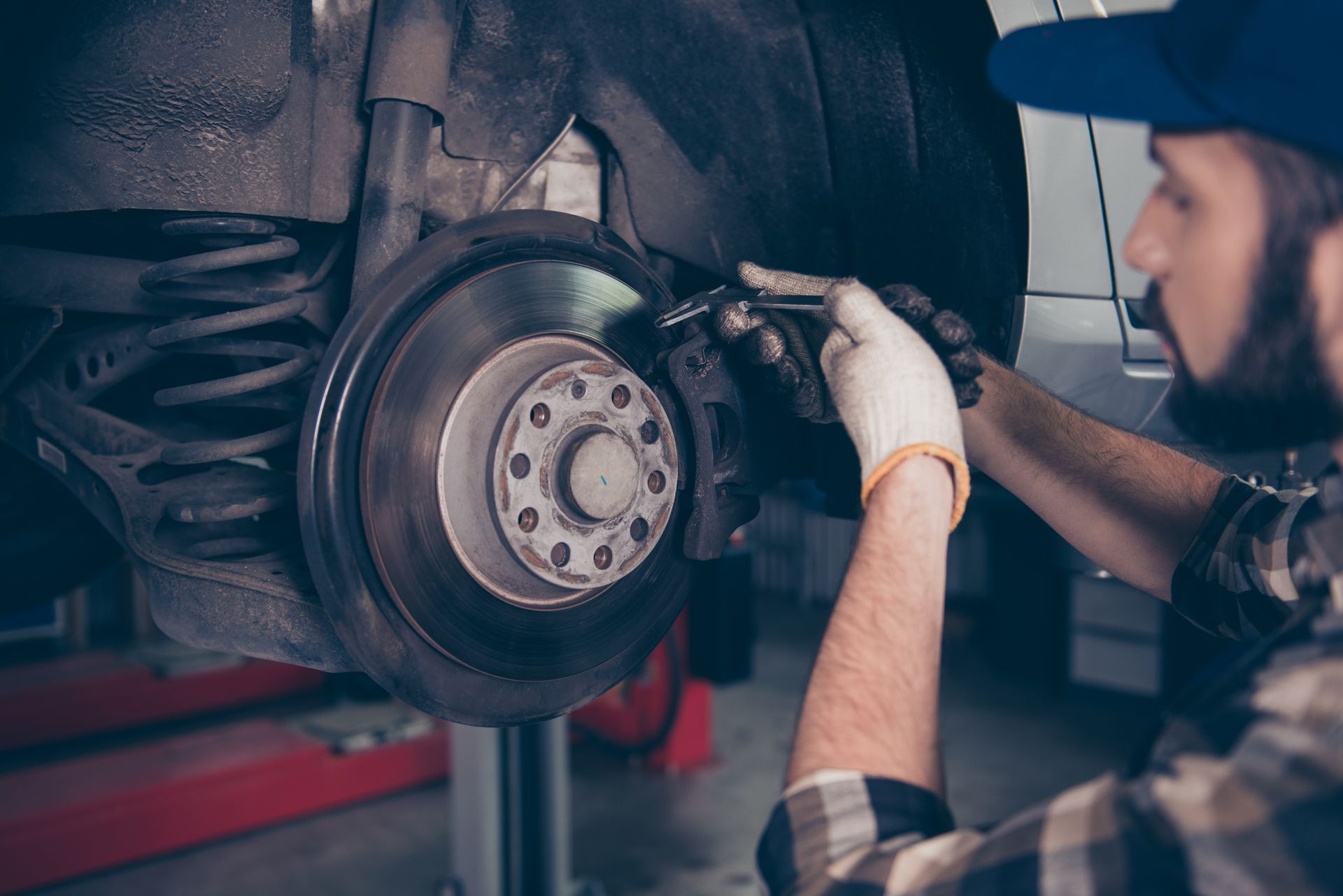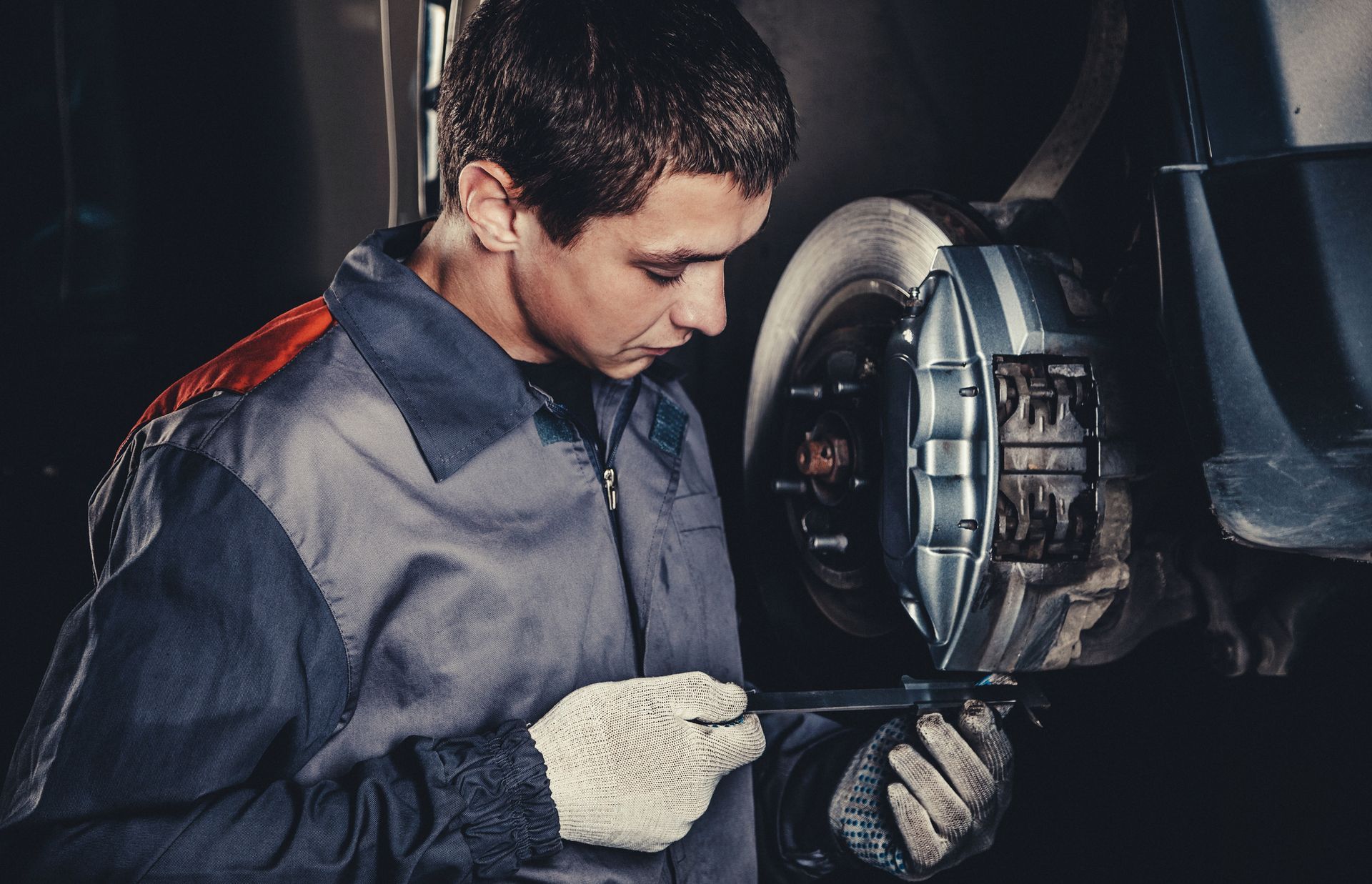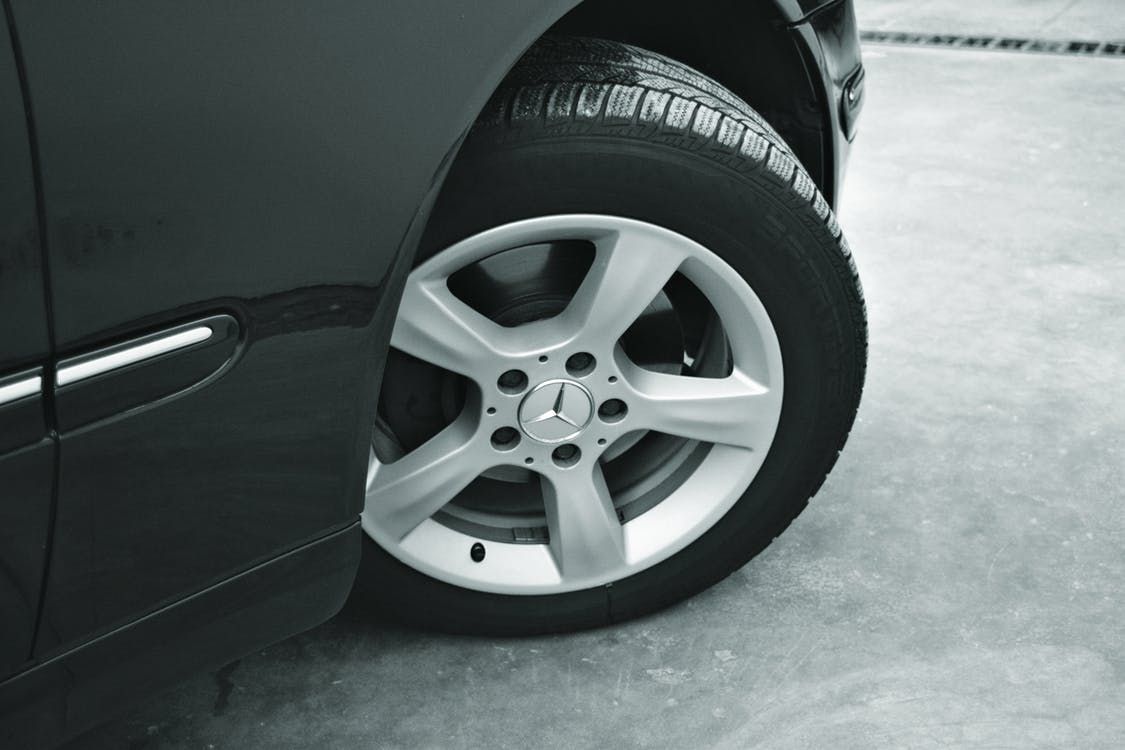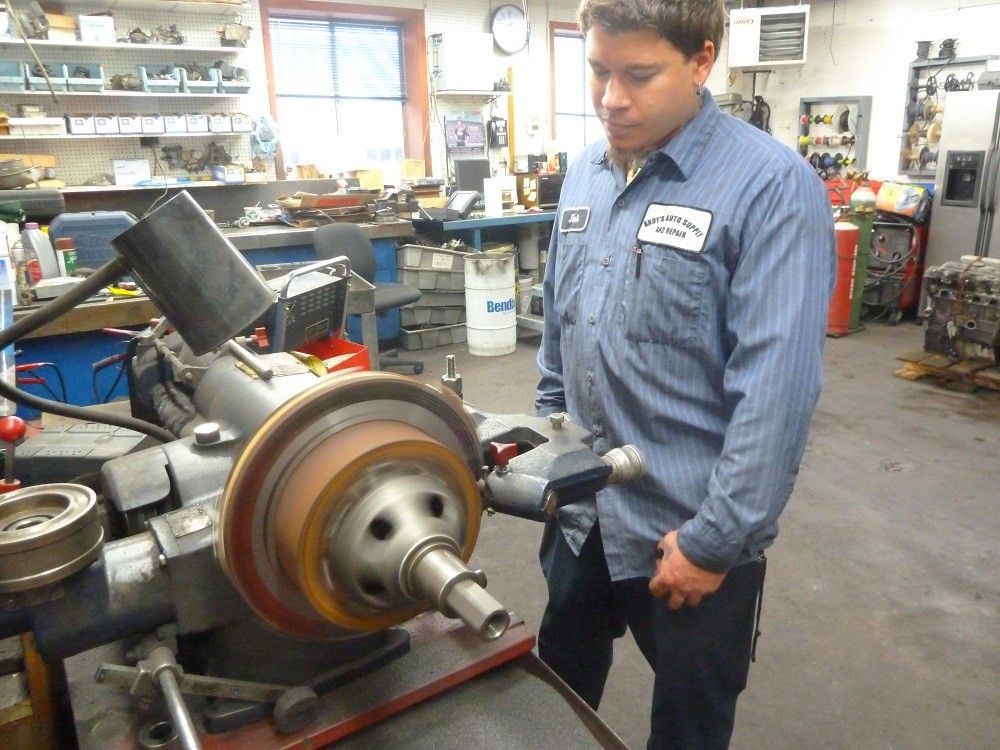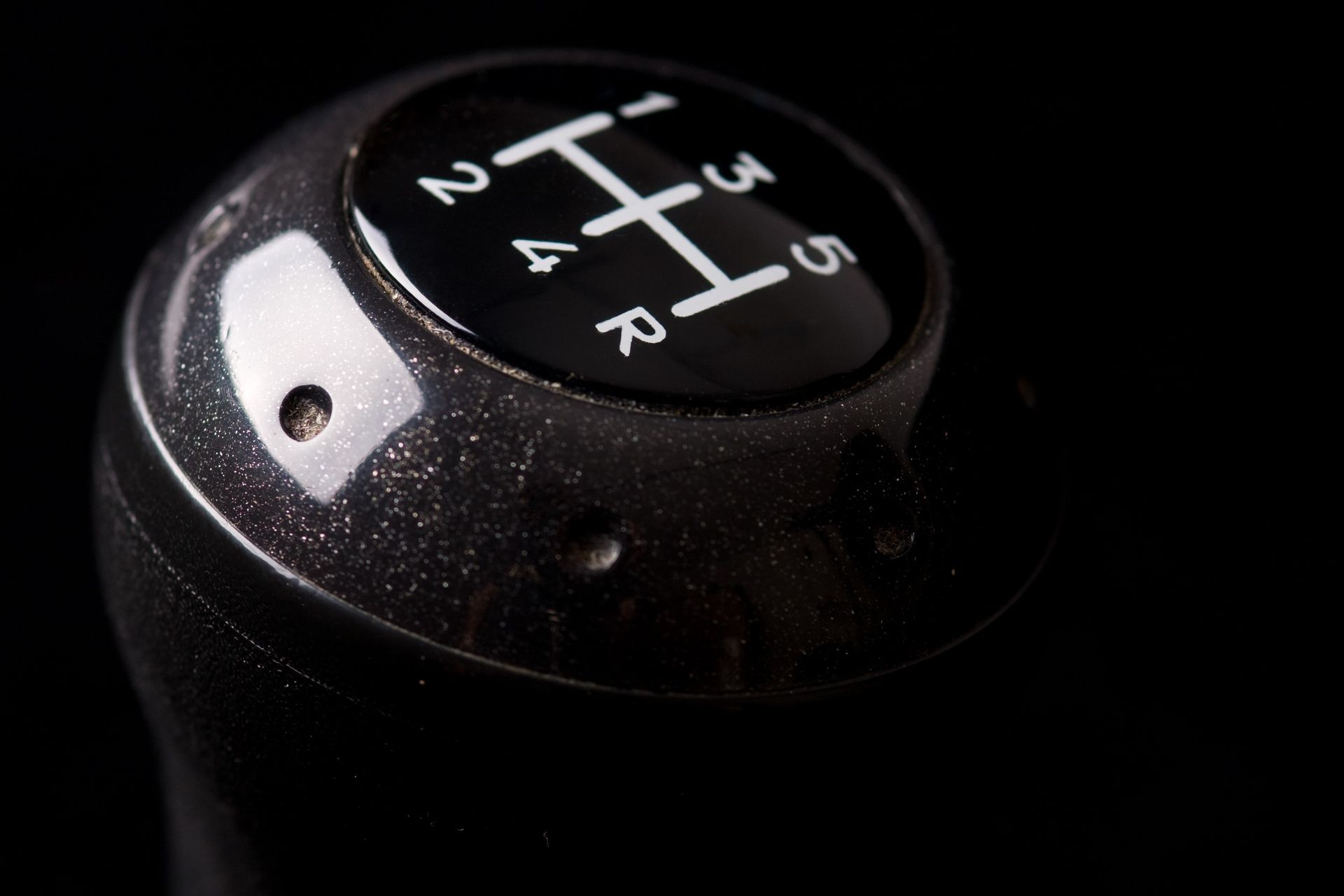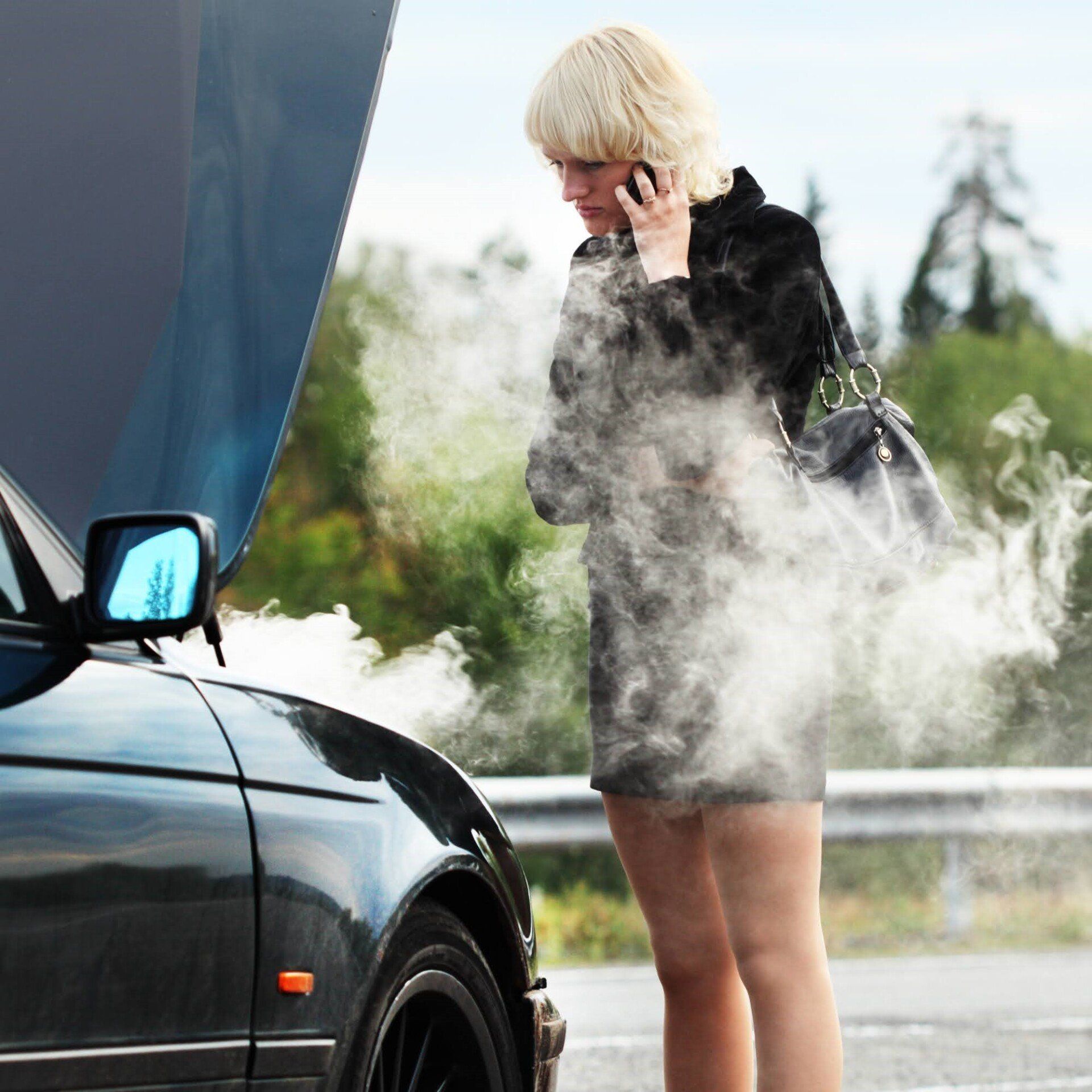Brake Dust | Stop Master Brakes
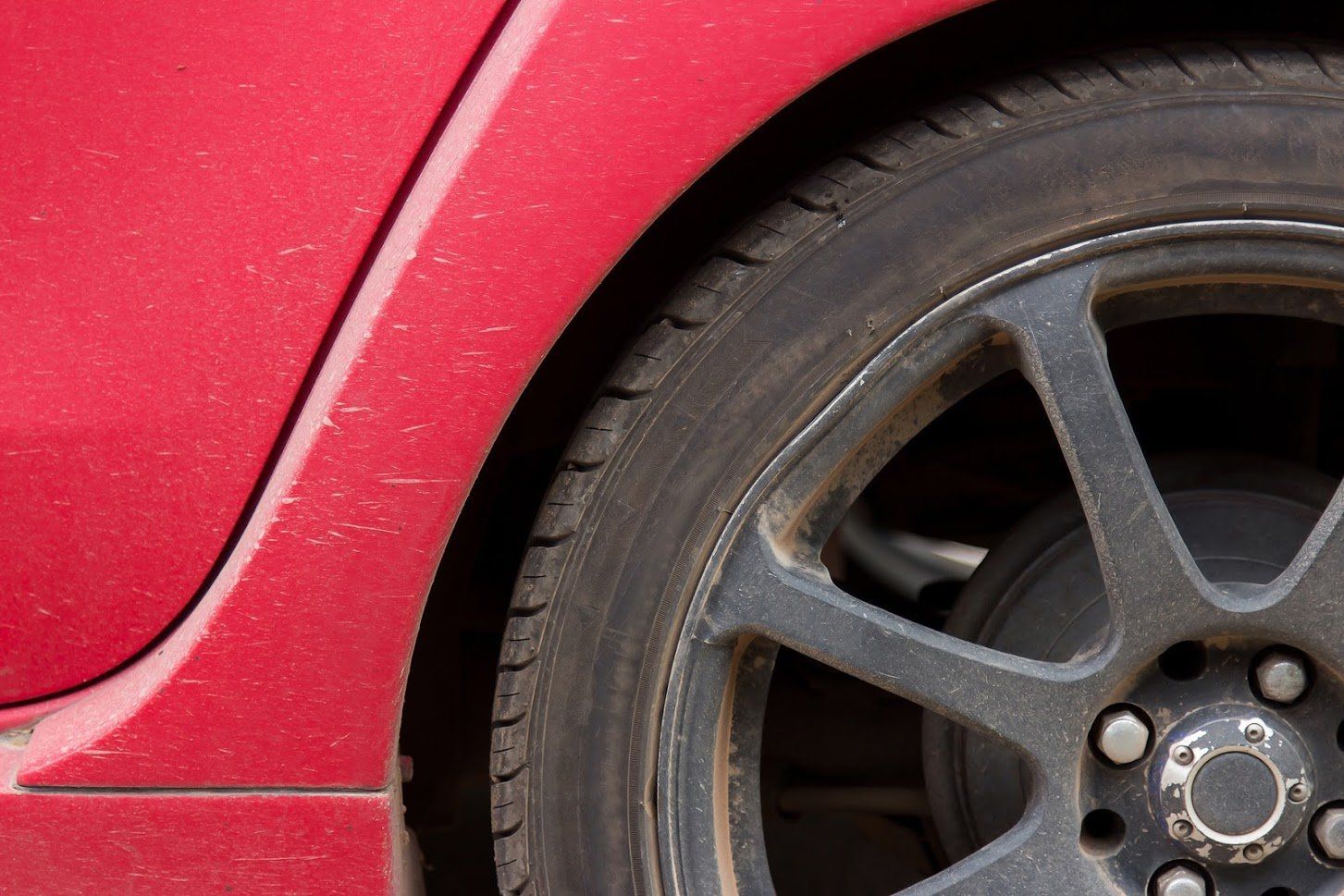
Are you meticulous about keeping your car clean? Even so, you may have noticed deposits of fine, grey dust accumulating on your wheel rims and around the wheel arches. This is brake dust, which is created when your car's brake pads come into contact with the wheel rotors whenever you apply your brakes.
Some cars, and some types of brake pads, will produce more brake dust than others. Thick deposits of brake dust can make your vehicle's wheels look unsightly, and you don’t clean away the dust regularly and thoroughly, this may cause your car's rims to have permanent marring and discolouration. Aluminium alloy wheels are particularly vulnerable to damage from brake dust.
Fortunately, brake dust is easily removable from your car's rims and wheel arches. You just apply the same methods you use to keep the rest of your car clean. However, if your car's brakes produce unusually large amounts of brake dust, this may signify an underlying problem with your vehicle's braking system. Discover two of the most common causes of excessive brake dust.
Metallic brake pads
Many modern production vehicles have metallic or semi-metallic brake pads. These brake pads comprise densely woven mats of compressed metallic fibres, as well as graphite-based lubricants and other filler materials.
Metallic brake pads often provide excellent braking performance, are relatively inexpensive and do not produce a significant amount of noise when activated. They are also excellent conductors of heat, which can help to prevent dangerous brake pad overheating during prolonged periods of use.
Unfortunately, metallic brake pads are also notorious for producing large amounts of brake dust, and the less expensive metallic pads fitted as standard to many economy vehicles can be particularly troublesome. If your car has inexpensive, metallic brake pads that produce large quantities of dust, you can replace them with ceramic or organic alternatives from a professional brake servicing company.
Organic brake pads have a variety of materials, including fibreglass, rubber and Kevlar. They are often less expensive than metallic pads and produce less dust than metallic pads under normal driving conditions—perfect if you want to solve your brake dust problems on a tight budget. However, they tend to wear out more quickly than metallic brake pads.
Ceramic pads may be an even better solution. These pads produce negligible quantities of brake dust and match or exceed metallic pads in terms of raw braking power. They are significantly more expensive than organic or metallic pads, but the investment can be well worth it if your car has high-quality alloy wheels.
Malfunctioning brake calipers
Your car's brake pads attach to brake calipers, which move the pads into contact with the wheel rotors whenever you activate your brakes and withdraw them when you take your foot off the brake pedal. If you notice large deposits of brake dust forming on just one of your vehicle's wheels, a malfunctioning or frozen brake caliper may be the cause.
Frozen brake calipers do not withdraw the brake pad quickly enough when you deactivate your brakes, so the brake pad stays in contact with the rotating wheel rotor for longer than necessary. This causes increased wear on the pad attached to the affected caliper, producing large quantities of brake dust and causing the pad to wear away more quickly.
If a frozen brake caliper has caused your brake dust problems, you may have already noticed a difference in your vehicle's braking performance. Your vehicle may pull towards the side of the vehicle with the frozen caliper when you apply your brakes, especially at high speeds. This can be dangerous and may cause you to lose control of your vehicle during emergency braking situations.
If one of your car's wheels produces more brake dust than normal, you should have professional brake service personnel inspect the brake as quickly as possible, before the problem gets any worse. Contact the brake servicing experts at Stop Master Brakes to ensure your stricken brakes get the care and attention they deserve.

